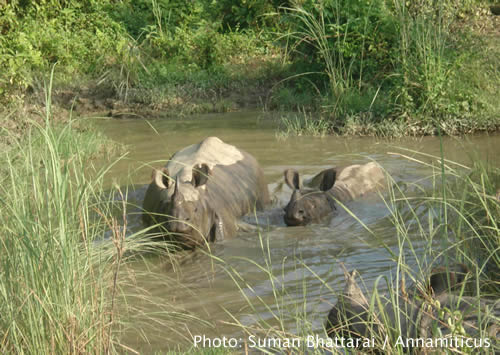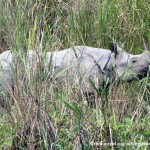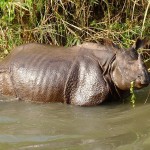
Chitwan National Park in Nepal, a safe haven for endangered species and exemplary conservation initiative, has recently come under threat from a proposed transportation project.
The UNESCO World Heritage Site, which celebrated a year of zero rhino, elephant and tiger killings on World Wildlife Day, will be dissected by a highway and railway line if government transport plans proceed as outlined.
In July 2013, Nepal’s Finance Minister Shankar Koirala presented plans for the upgrade of the East-West Electric Railway and the Tarai Hulaki Highway. Both projects will introduce construction to the currently commendable wildlife environment, habitat loss for the endangered species therein, and disruption of mating and anti-poaching patrols.
This would be a tragic turn of events for Chitwan National Park, says Hemanta Mishra — who was instrumental in the Park’s establishment in 1973 — in the Nepali Times.
“There is no rationale for building a road or railway through one of the world’s most outstanding and successfully operating national parks… A railway line and a road through the park without a comprehensive environmental and social impact assessment would undo 40 years of investment by the government, private sector, and the local community.”
Mishra is the author of the highly-recommended book The Soul of the Rhino: A Nepali Adventure with Kings and Elephant Drivers, Billionaires and Bureaucrats, Shamans and Scientists, and the Indian Rhinoceros.
Chitwan National Park is a guiding light in Asian conservation efforts, utilizing community-based intelligence networks, conservation drones, and soon also sniffer dog patrols in its anti-poaching initiatives. Meanwhile, Nepali authorities dismantled the network of international rhino horn trafficker Rajkumar Praja. An INTERPOL Red Notice has since been issued for Praja.
Let’s encourage the government to continue to set an example for ecological conservation, and alter the transport plans. One option is to circumvent Chitwan National Park by following the existing East-West Highway, which would add about 48 miles to the route. A petition to protect the park is posted here.




